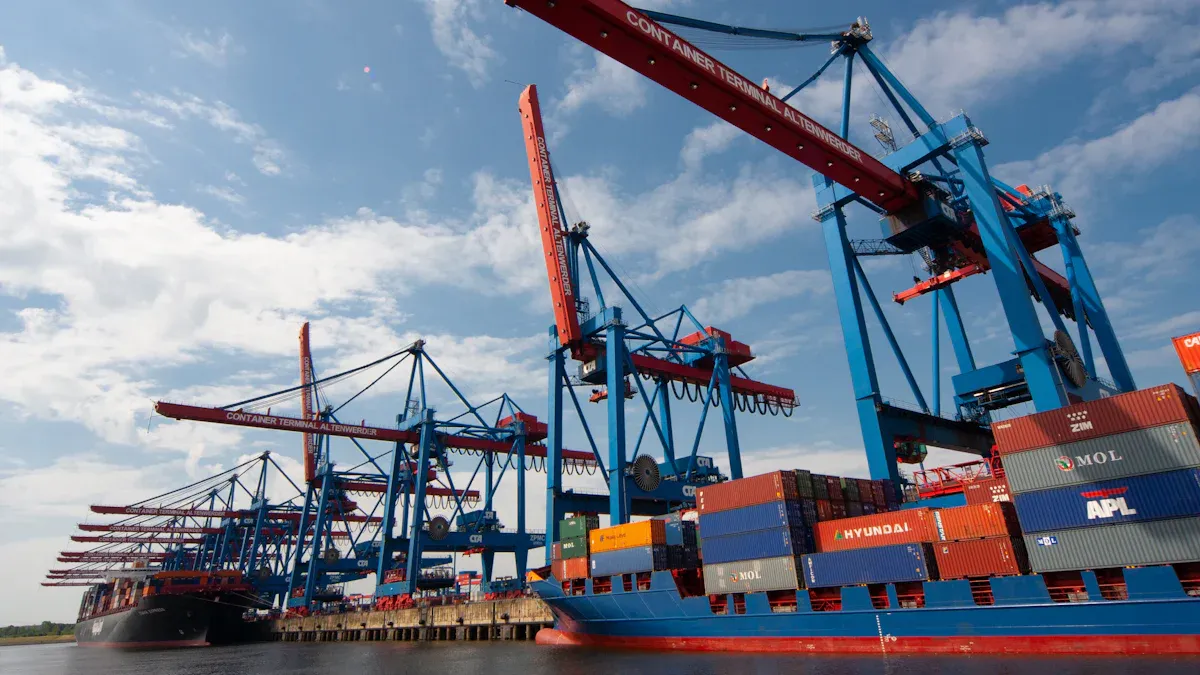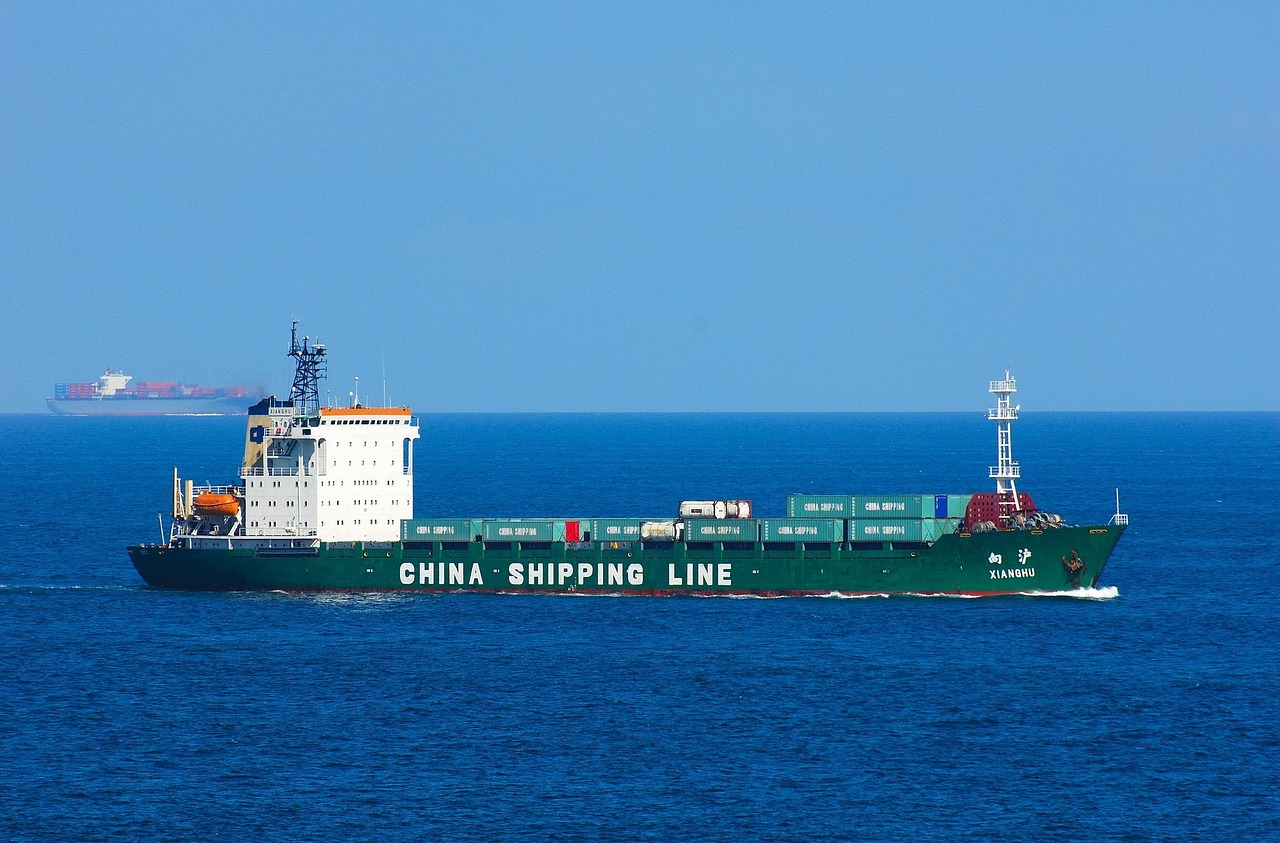Top Tips for Navigating Incoterms 2025

Are you confused about which Incoterms to use for international trade? Here are some practical tips to help you choose the right one.
Tip 1: Understanding Buyer and Seller Obligations
What Are Incoterms and Their Uses?
Incoterms, short for International Commercial Terms, serve as a universal language in international trade. They define the responsibilities of buyers and sellers, ensuring clarity in shipping agreements. Understanding them helps you avoid disputes, manage risks, and streamline logistics.
Incoterms 2025 Chart
This table below highlights the responsibilities between buyer and seller and when the responsibility will transfer.
Incoterm | Transport Mode | Responsibility Transfer Point |
|---|---|---|
EXW (Ex Works) | All modes | At seller’s premises |
FCA (Free Carrier) | All modes | At seller’s premises or agreed location (e.g., port) |
FAS (Free Alongside Ship) | Sea/waterway only | When goods are placed alongside the ship at port |
FOB (Free on Board) | Sea/waterway only | When goods are loaded on board the vessel |
CFR (Cost and Freight) | Sea/waterway only | When goods are loaded on board the vessel |
CIF (Cost Insurance Freight) | Sea/waterway only | When goods are loaded on board the vessel |
CPT (Carriage Paid To) | All modes | When goods are handed to first carrier |
CIP (Carriage and Insurance Paid To) | All modes | When goods are handed to first carrier |
DAP (Delivered at Place) | All modes | At agreed destination (unloaded) |
DPU (Delivered at Place Unloaded) | All modes | At destination after unloading |
DDP (Delivered Duty Paid) | All modes | At destination after import clearance |
Incoterms 2025 Comparison of Pros and Cons
Incoterm | Pros | Cons |
|---|---|---|
EXW | Minimal seller responsibility. | Buyer bears all risks and logistics. |
FCA | Flexible for all transport modes. | Buyer assumes risk once goods are handed to carrier. |
FAS | Clear division at port. | Limited to water transport; buyer handles loading. |
FOB | Common for sea freight; balances responsibilities. | Only for water transport. |
CFR | Seller covers sea freight costs. | Buyer manages insurance and post-port risks. |
CIF | Seller provides insurance. | Limited to water transport; buyer handles post-port risks. |
CPT | Seller covers transport costs. | Buyer bears risks during transit. |
CIP | Full insurance coverage by seller. | Higher seller costs; buyer still assumes transit risks. |
DAP | Seller covers all transport costs to destination. | Buyer manages unloading and import duties. |
DPU | Seller handles unloading. | Buyer must manage import procedures. |
DDP | Simplifies buyer’s process. | Seller must navigate foreign customs. |
As a global digital logistics expert, YQN Logistics can help you navigate 2025 incoterms with ease. YQN offers comprehensive services, including sea freight, air freight, customs clearance, and insurance. With a user-friendly platform, you can compare rates, book shipments, and manage orders online. Get a quote now to simplify your international trade operations.
Tip 2: Choosing the Right Shipping Term for your Shipments
Understanding Buyer and Seller Obligations
Understanding the division of responsibilities between buyers and sellers is crucial in international trade. Incoterms define who handles specific tasks, such as transportation, customs clearance, and insurance.
Here’s a quick reference table summarizing key obligations under 2025 incoterms:
Incoterm | Seller VS Buyer Obligations |
|---|---|
EXW | Seller only makes goods available at their location. Buyer handles all transport, costs, and risks. |
FCA | Seller delivers goods to carrier/buyer’s agent. Buyer arranges main transport. |
FAS | Seller delivers goods to port, alongside the vessel. Buyer loads and covers sea freight. |
FOB | Seller covers costs/risks until goods are on the ship. Buyer handles sea freight and beyond. |
CFR | Seller pays for sea freight to destination port. Buyer handles insurance and onward transport. |
CIF | Seller pays for sea freight and insurance to destination port. Buyer handles onward transport. |
CPT | Seller pays freight to destination, but risk transfers when goods are handed to the first carrier. |
CIP | Seller pays freight and insurance to destination. Risk transfers to buyer at first carrier. |
DAP | Seller delivers goods to destination but does not unload. Buyer handles unloading and import clearance. |
DPU | Seller delivers and unloads goods at destination. Buyer handles import clearance. |
DDP | Seller covers all costs/risks, including import duties and taxes. |
Choosing the Right Shipping Terms for Your Transaction
Selecting the right Incoterm depends on several factors. First, consider the mode of transport. Some terms, like FOB, apply only to maritime shipping, while others, like EXW, work for any mode. Next, evaluate your level of experience. If you’re new to international trade, choose terms like DDP that minimize your responsibilities. Also, assess how much control you want over the shipping process and decide who will handle insurance.
Incoterms 2025 for Different Situations
Incoterm | Best For |
|---|---|
EXW | Experienced buyers with full control over logistics. |
FCA | Buyers who want partial supplier involvement. |
FAS | Bulk cargo shipped by water. |
FOB | Standard sea shipments. |
CFR | Buyers comfortable with post-port logistics. |
CIF | Buyers prioritizing insured sea shipments. |
CPT | Buyers seeking cost control but accepting transit risks. |
CIP | High-value goods needing insured transport. |
DAP | Buyers with local unloading capabilities. |
DPU | Buyers needing goods unloaded but not cleared. |
DDP | Inexperienced buyers or regulated markets. |
Tip 3: Consulting the Professionals

The Role of Freight Forwarders
Freight forwardersplay a critical role in ensuring smooth operations in international trade. They handle essential tasks that simplify logistics and ensure compliance with Incoterms.
Freight forwarders manage classification and documentation, ensuring all paperwork aligns with regulatory requirements.
They oversee customs clearance, reducing the risk of delays at borders.
Cargo insurance is another key responsibility, protecting your goods against unforeseen risks.
By adhering to contracts of carriage, they ensure your shipments reach their destination efficiently.
Many freight forwarders now use automation solutions to enhance accuracy and streamline processes.
YQN Logistics, a digital freight forwarder, simplifies global trade with sea/air/rail freight, customs clearance, warehousing, and insurance. Their platform enables rate comparison, booking, and real-time tracking via 3,500+ suppliers and 300+ carriers. Experts guide on Incoterms (e.g., FOB, DDP) to reduce risks and costs.
📧 Note: Reach out to YQN’s team at info@yqn.com for free consulting and professional advice tailored to your business needs.
FAQ
How do I choose the right Incoterm for my shipment?
Consider factors like transport mode, destination, and your level of control over logistics. For example, FOB suits maritime shipping, while DDP simplifies buyer responsibilities. YQN’s experts can help you evaluate your needs and select the best option.
Get a quote now
Can Incoterms reduce shipping costs?
Yes, choosing the right Incoterm can optimize cost allocation. For instance, EXW minimizes seller costs, while CIF includes insurance and freight. YQN’s platform simplifies cost comparisons and helps you make informed decisions to save money.
Get a quote now
Do Incoterms apply to all modes of transport?
Some Incoterms, like EXW and DDP, apply to any transport mode. Others, like FOB and CIF, are specific to maritime shipping. YQN Logistics offers multimodal solutions and ensures compliance with the appropriate Incoterm for your shipment.
Get a quote now
See Also
February 2025 Updates on Ocean Freight in China
Significant Updates to Single Administrative Document Rules 2025

Shipping with YQN - Global Logistics at Your Fingertips
YQN has established subsidiaries worldwide, covering North America, Latin America, Southeast Asia, and the Middle East. We have partnered with 300+ top shipping and airline companies and have access to 3500+ high-quality supplier resources. YQN also has a professional customer service and fulfillment team of over 500 people to provide more worry-free and efficient international logistics services.
Contact Us
You can also email us at info@yqn.com.

